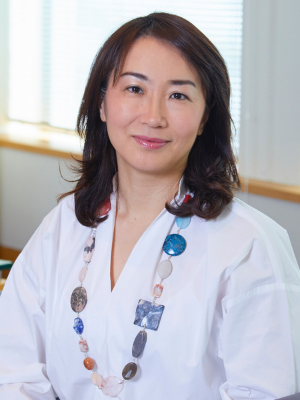 The chief of staff for Japan discusses her time at Goldman Sachs and shares career advice in the latest edition of The Glass Hammer.
The chief of staff for Japan discusses her time at Goldman Sachs and shares career advice in the latest edition of The Glass Hammer.
“I have a bicultural background – I lived in Queens, NY until I was 10, and then my family moved back to Japan, where I have lived ever since,” shared Akiko Koda, chief of staff for Goldman Sachs in Japan. “I was motivated to apply to Goldman Sachs due to my prior experience growing up in both the US and Japan – I thought I could contribute in a unique way to a global firm and serve as a facilitator between both cultures.”
Koda joined Goldman Sachs as a campus hire in 1994, initially within the Equities Division, as a member of a sales trading team. She gained seniority and held numerous roles within Equities, before moving to the Financing Group within the Investment Banking Division (IBD). In 2008, Koda joined the IBD Advisory Group, and then transferred to the Executive Office in the midst of the financial crisis. At that time, she began her current chief of staff role, and now also serves as co-chief administrative officer for Japan and head of Human Capital Management in Japan.
“My day to day role is focused on ensuring that the Japan office is running effectively and efficiently in all aspects,” Koda said. “Looking ahead, the office will be moving to a new building in the coming years, and we’re excited about further growth in the region – particularly following the launch of the Goldman Sachs Bank USA Tokyo branch earlier this year.”
As the new year begins, Koda shared that she typically selects a word to help lead and rally her team around, noting that for 2022, she selected “Focus.” “I believe that by focusing and prioritizing our work and the output, we can continue to make progress,” Koda said. “Given we have now entered the third year of the pandemic, I think it is important to focus on what we can control, rather than what we cannot, and focusing on what is important to you and on what brings you joy during this challenging period.”
Supporting Goldman Sachs’ Focus on Recruiting, Retaining Talent
Commenting on the firm’s focus on recruitment, Koda shared: “Our Japan entity was voted the ‘Best Financial Firm to Work For’ by both potential campus hires and former employees.
This is an incredible recognition of our business over the last 45 years.” She added: “The firm has a long history of hiring campus hires who go on to lead the business – several members of the Japan leadership team are campus or MBA hires.”
Koda noted that her own experience at the firm has included extensive, firm-provided coaching. “I was a member of the firm’s first class of VP LAI, or Vice President Leadership Acceleration Initiative, in 2004. Participating in the program helped me to understand how I could be a better leader,” she said. “Throughout my time at the firm, I’ve asked Pine Street, the firm’s leadership development group, to help me evolve my leadership style, and received a lot of helpful and candid feedback from my coach.”
She noted that during her time at Goldman Sachs, she has aimed to pass along the guidance she has received over the course of her career by serving as a mentor to others, both to individuals based in Japan, as well as those in other countries. Koda notes that she regularly reminds junior professionals of the importance of soliciting feedback and guidance from a variety of mentors: “Think of your mentors as your Board of Directors.”
Koda also shared that mentors, managers and colleagues have all helped her progress throughout her tenure at Goldman Sachs. “I haven’t come this far in my career without the help of many people – I’m incredibly grateful to those who have helped guide and support me throughout my time at the firm.”
Finding Time For Herself – and Her Community
Koda shared that after being at the firm for several years: “I burned out in 1999. I needed to take a break, and left the firm for a year, and then returned to Goldman Sachs.” She
reflected on guidance she received later on in her career, which has continued to shape her approach to work: “A mentor advised me to be ‘relentless about managing my schedule, and to feel empowered to make my schedule my own.’”
“That advice has stayed with me, and I would recommend others really understand their limits and priorities. You need to take control of your calendar to prioritize what is important for you at each moment. For me, that’s my family,” shared Koda.
Throughout the pandemic, Koda has focused on spending time with her sons – who are aged 8 and 10 – and training their new Pekingese that they welcomed during the pandemic. In addition, she has a “green thumb” and tends to several orchids that call her office home. “When I became a board member of the firm’s Japan entity, I was gifted several orchids from clients – I’m lucky that they continue to bloom each year and remind me of that important
accomplishment.”
Outside of her day to day responsibilities, Koda is also a managing director ally of the LGBTQ+ Network. “When I lived in New York, there were only a handful of Asian students in my school – I was different,” she said. “When my family moved back to Japan, even though I looked like my classmates, I was labeled as a ‘returnee’ and considered not Japanese enough. To fit in, I tried to hide the fact that I grew up overseas.”
Koda noted: “I know firsthand how hard it can be to be considered different. I continue to be an ally to the LGBTQ+ community because it’s so important for each individual to feel comfortable bringing their authentic self to the workplace, and to be welcomed.”
She described the progress the firm has made in fostering an environment where all diverse individuals can succeed, and highlighted as one example the variety of events the firm’s LGBTQ+ Network holds each year, including celebrating Pink Friday. “As a Japanese woman, who grew up in the US and became a devoted ally of the LGBTQ+ community, I feel my own identity and experiences touch on so many aspects of diversity. I want to celebrate them all.”
Learn more about Goldman Sachs’ recent awards and recognitions and the firm’s diversity and inclusion efforts. Listen to an Exchanges at GS podcast, in which Koda discusses the evolution of LGBTQ+ rights in Japan and companies’ efforts to create more inclusive environments.

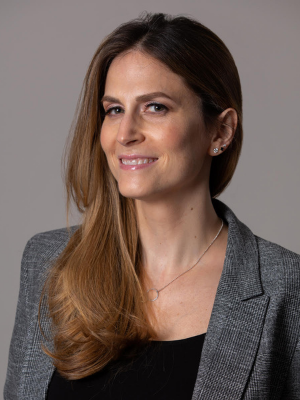

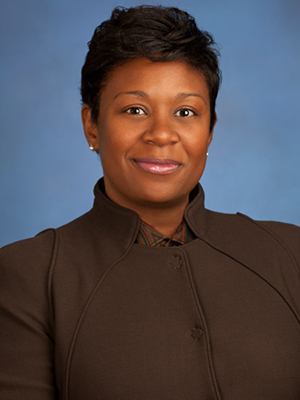

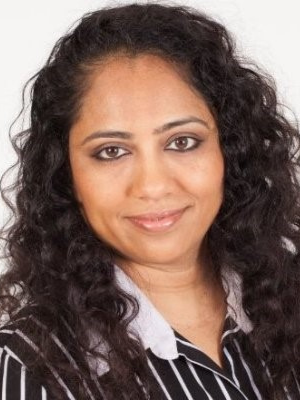
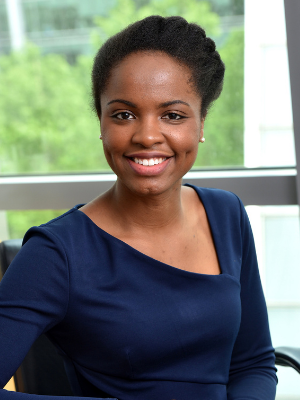
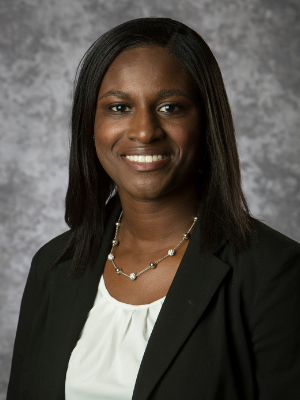
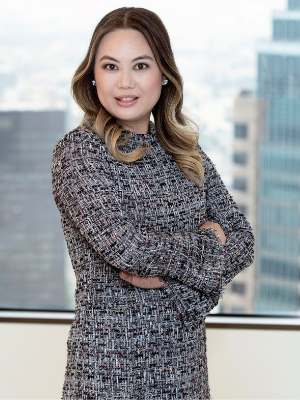
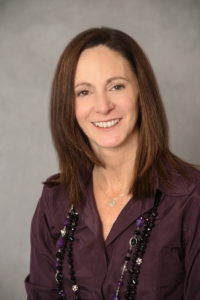 Lisa Hutter has been well served by the advice to take time to listen, but then also reflect, in order to figure out how you want to respond.
Lisa Hutter has been well served by the advice to take time to listen, but then also reflect, in order to figure out how you want to respond.